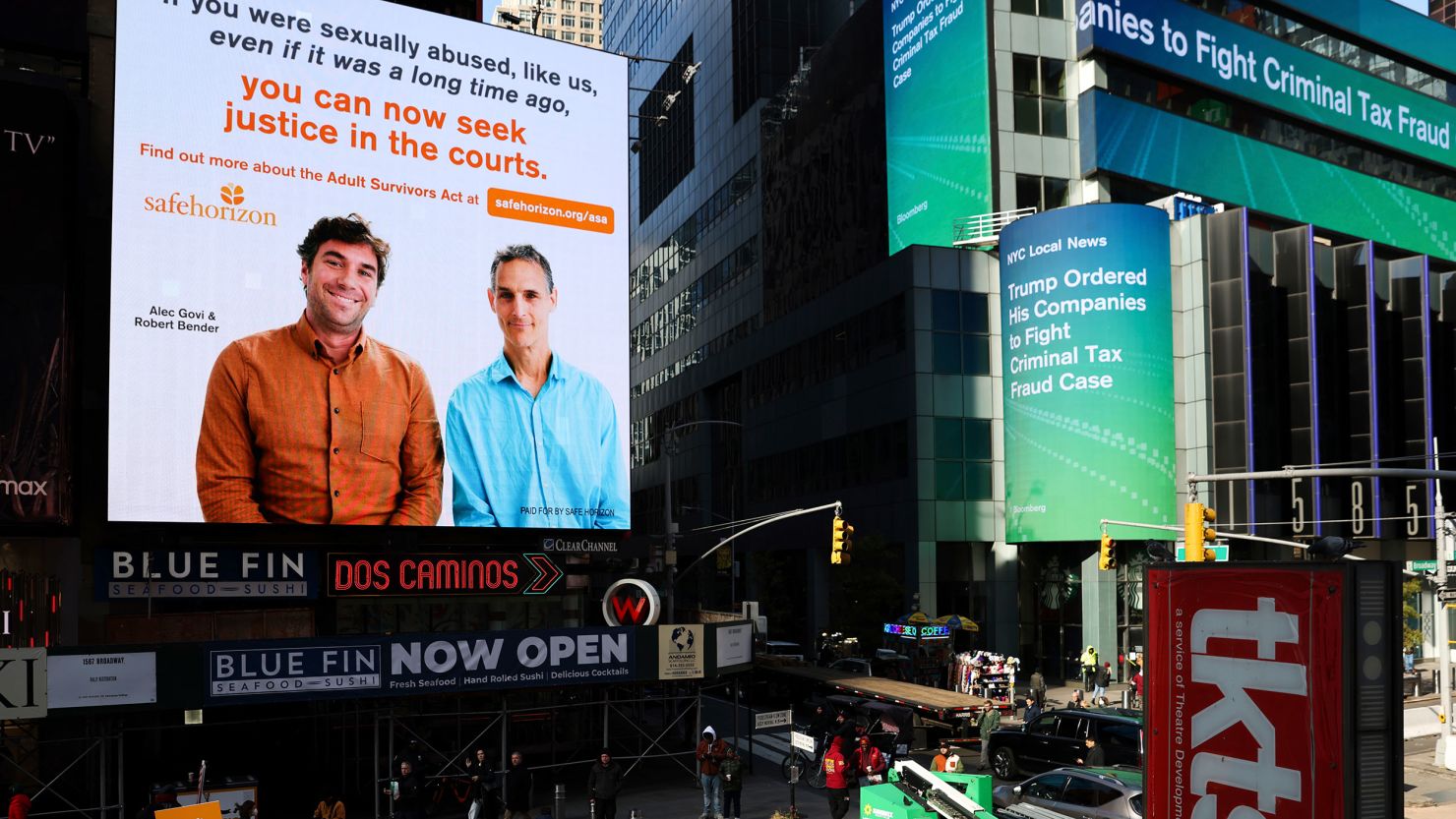Adult survivors of sexual abuse now can sue their abusers in New York – even if the statute of limitations on their claims has expired – under a state law that goes into effect Thursday.
The new law gives adult survivors of sexual assault one year to file lawsuits against their perpetrators. It also allows people who were sexually assaulted at work or in the care of an institution like a hospital or jail to sue that entity, said attorney Doug Wigdor, who helped push for the law.
“I think there will be some very interesting cases that come about in the employment cases where powerful men, who were supervising women or overseeing women, sexually assaulted them and they will be able to hold their perpetrator accountable but also their employers,” said Wigdor, who represented women who testified against movie mogul Harvey Weinstein, whose convictions in New York for rape and criminal sex act convictions were upheld this year.
One suit filed early Thursday under the new law aims to hold former President Donald Trump accountable for allegedly raping then-magazine columnist E. Jean Carroll in the mid-1990s. Trump has denied the claims.
The new window to sue in New York gives adult sexual assault survivors who may not have been able to process what happened to them more time to seek recourse, said Jane Manning, a former sex crimes prosecutor and now head of the Women’s Equal Justice Project in the state.
The measure mirrors the 2019 Child Victims Act that for two years temporarily expanded New York’s statute of limitations in child sex abuse cases, yielding nearly 11,000 suits, New York State Office of Court Administration spokesperson Lucian Chalfen said.
“Sexual assault is a highly traumatizing crime. Trauma by itself takes time to process,” Manning said. “Add to that the fact that our culture has loaded many of us up with rape myths about what a real rape looks like that don’t match real sexual assaults that happen in real life.
“Because of that, there are survivors who don’t even identify what happened to them as sexual assault until some time has gone by. And there may be a lot of self-blame to grapple with, even though that self-blame is completely unwarranted,” she said.
It is important to give adult sex assault survivors an opportunity to seek recourse through the civil justice system, as they are often failed by the criminal justice system, Manning said.
“All too often in the criminal justice system, we still have too many prosecutors who decline to take sex crime cases to trial simply because they think they will be difficult to win,” she said. “That is not a good reason to refuse to take a sex crime case to trial. But it’s a reason that survivors are still hearing from too many prosecutors.”
Suits expected over alleged abuse in prisons
Separate suits under the new law are expected to be filed on behalf of more than 750 women who allege they were sexually assaulted in New York State prisons, attorney Adam Slater said.
“The detainee-guard relationship is one of the most extreme power imbalances that exists today,” Slater said. “Under New York State law, a person in correctional custody is legally incapable of consent. Officers and guards in these facilities have an unmatched arsenal of methods for exerting their will upon victims: physical confinement, force, withholding of privileges and total control over their environments.”
New York’s Department of Corrections and Community Supervision has “zero tolerance for sexual abuse, sexual harassment, and unauthorized relationships,” the agency said in a statement, noting it “thoroughly investigates all reports of sexual victimization, including unauthorized relationships, and retaliation against any individuals who report incidents or cooperate with those investigations.
“Staff have an affirmative duty to report any knowledge, suspicion, or information regarding an incident of sexual abuse or sexual harassment, and any unauthorized relationship,” it said. “Individuals who violate Department rules are disciplined by the Department and when there is evidence that a crime was committed, DOCCS refers those cases for criminal prosecution to the fullest extent permitted by law.”
When asked for comment, the New York attorney general’s office referred CNN to the Department of Corrections and Community Supervision.
Carroll on Thursday sued Trump for battery and defamation under the new law. It’s the second suit she’s filed against him and the first to seek to hold Trump accountable for battery for allegedly raping Carroll 27 years ago in a Bergdorf Goodman dressing room. The suit also alleges a new defamation claim based on statements Trump made last month.
“Trump’s underlying sexual assault severely injured Carroll, causing significant pain and suffering, lasting psychological harms, loss of dignity, and invasion of her privacy. His recent defamatory statement has only added to the harm that Carroll had already suffered,” the suit alleges.
Carroll is asking a judge to order Trump to retract his defamatory statements and award compensatory, punitive and exemplary damages in an amount to be determined at a jury trial.
Trump has denied all allegations against him.
More lawsuits are expected on behalf of about 40 more women with new claims against a Columbia University gynecologist Dr. Robert Hadden, said attorney Anthony DiPietro, who represented 230 women allegedly sexually abused by Hadden. Nearly 150 of those cases were settled before the Adult Survivors Act went into effect.
Hadden is due to go on trial next year on six counts of enticing and inducing victims to his medical offices in New York and subjecting them to unlawful sexual abuse from about 1993 to 2012, prosecutors have said; Hadden has pleaded not guilty.
CNN’s Kara Scannell contributed to this report.







